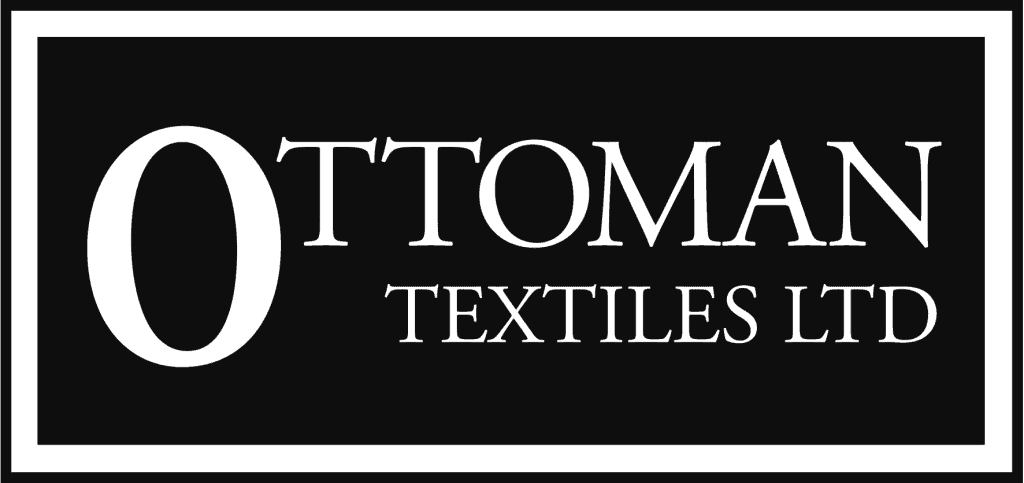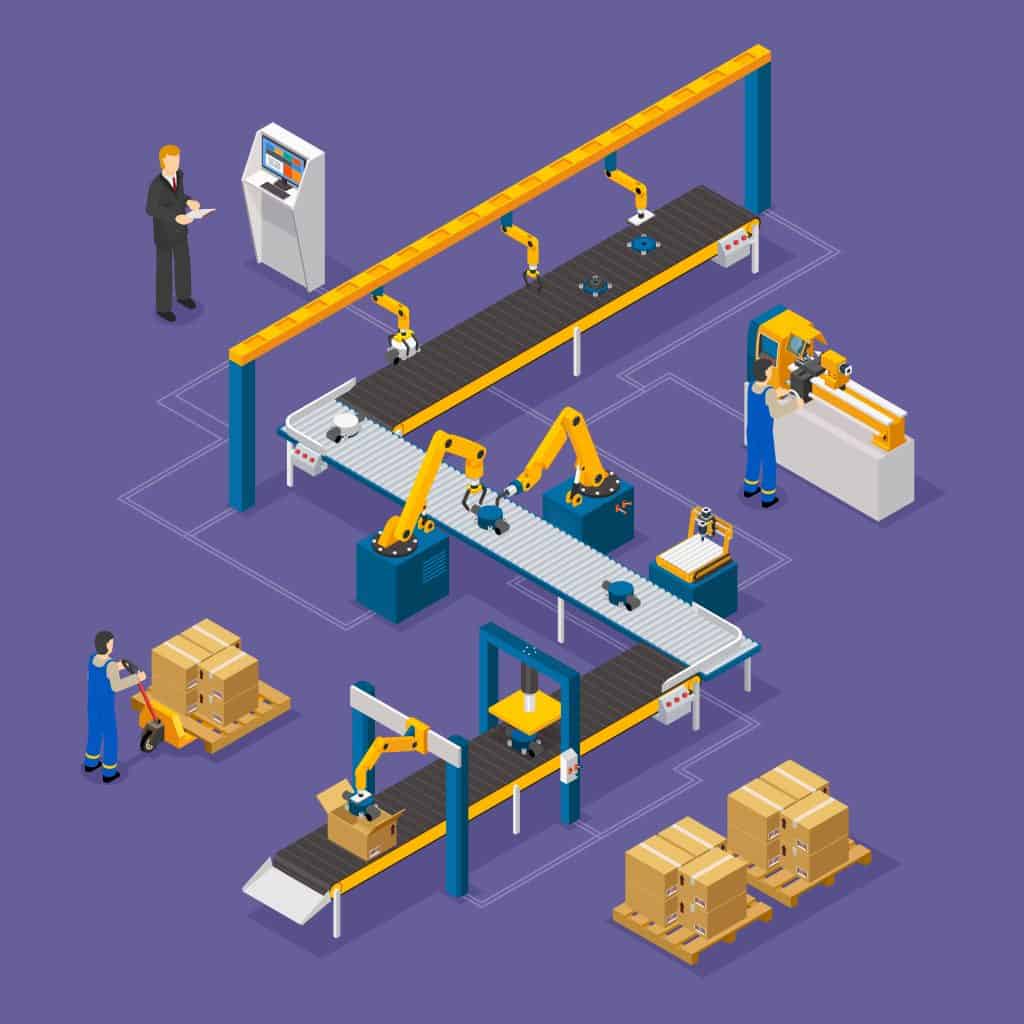Wholesale / Business Guide
What is Manufacturing?
Table of Contents:
- What is a Manufacturer?
- What Does the UK Manufacture?
- Textile Manufacturing in the UK
- How to Find a Manufacturer?
- Final Words
Manufacturing is using raw materials and transforming them into products or goods. The manufacturing process involves using tools, equipment, machinery, human labour and skills to create the goods.
For centuries, manufacturing has played a vital role in human civilisation. Since the early days of human history, people have created products, tools and weapons. Manufacturing is crucial to human survival, enabling people to develop essential items for basic human needs.
In modern society, manufacturing is more crucial than ever. The process of manufacturing enables humans to access essential goods and services, from food to clothing and transport vehicles. New technologies have also emerged, allowing humans to create more sophisticated products and services. As technology develops, you can expect more advanced manufacturing solutions to come within your reach. Technological advancements also make possible the creation of products with better design, quality and performance.
Lastly, manufacturing plays a vital role in economic growth and job creation. Manufacturing is one of the biggest employers, creating jobs for millions worldwide. In the UK alone, it employs 2.7 million people.
Now that you know what manufacturing is, it’s time to delve deeper into the role of a manufacturer. You will also find information on the specific types of products commonly manufactured in the UK and how to find manufacturers of the particular products you need for business or personal use.
What is a Manufacturer?

The manufacturer plays a crucial role in the manufacturing industry. Manufacturers help the economy and society in general. They are responsible for designing, creating and producing goods that people use daily.
A manufacturer can be an individual or a company. First, they source the raw materials and components for their products. Then, the manufacturers undergo a series of steps and processes, from acquiring raw materials to creating the final product. Some manufacturers produce large quantities of a particular product to meet customer demands.
Since they create products that society needs, manufacturers benefit the economy. They offer employment opportunities and facilitate economic growth. The manufacturing industry is one of the most important industries in the economy. They can produce small items, such as electronic chargers and batteries, or large items, like vehicles and boats.
Manufacturers are involved in each step of product creation. As a result, they ensure that each phase meets the quality control specifications, from ideating or developing product concepts, through designing a prototype, to the actual manufacturing process.
There are several types of manufacturers, each with its areas of expertise. Here is an overview of the most common types of manufacturers.
1. Original Equipment Manufacturers (OEMs)
OEM manufacturers make products for other companies, which the latter will sell under their brand name. The companies who request product manufacturing will provide the product specifications. Once the product is finished, the company will sell those products under their name to consumers. The most common products manufactured by OEMs include clothing, shoes and computers.
2. Private Label Manufacturers
Private label manufacturers are those who create their products for their own brands. Therefore, they will start by manufacturing the products and then be the ones to sell the products. Furthermore, since they manufacture their products, private label manufacturers can offer them at a lower price point. Therefore, it is an attractive option for retailers.
3. Contract Manufacturers
Contract manufacturers create products for other companies under a given contract. They work closely with the client to ensure they meet the design specifications. The contract manufacturers usually specialise in certain products, such as medical devices and electronic components.
4. Make-to-Stock Manufacturers
This manufacturer creates products in advance and stores them in a warehouse before selling them to customers. They manufacture products based on consumer and market demand. Therefore, it is common for these manufacturers to create products in a large volume if they have a high market demand.
The best examples of products manufactured for the stock include clothing, beverages and consumer electronics like smartphones.
5. Make-to-Order Manufacturers
This type of manufacturer creates products only after a customer has ordered them. This method enables manufacturers to develop products to suit the unique specifications of each customer. Some examples of products that are made-to-order include furniture and machinery. In addition, certain types of clothing and apparel can also be custom-made, such as those special occasion gowns or shoes.
Understanding the different types of manufacturers provides insight into the whole manufacturing process. These manufacturers aim to innovate and adopt new technologies that allow them to deliver products that solve human issues and improve efficiency. Manufacturers face a wide range of challenges, such as supply chain disruptions and high competition.
What Does the UK Manufacture?

The UK manufacturing industry plays a vital role in its economy. It is one of the biggest employers in the UK and is responsible for a significant percentage of the UK GDP.
The UK is home to many manufacturing companies creating domestic and international products. The automotive industry is one of them. The UK is one of the world’s largest producers of cars, trucks and buses. There are many automotive manufacturing facilities in the UK, such as BMW, Nissan and Jaguar. 859,575 vehicles were manufactured in the UK in 2021. It ranks as the 14th largest car producer in the world. Aside from cars, the automotive industry in the UK also manufactures motorsports, bikes and accessories. Many companies like McLaren, Williams and Red Bull Racing are UK-based.
Aside from automotive, aerospace manufacturing is also prominent in the UK. World-renowned aerospace manufacturing companies in the UK include Rolls Royce and BAE Systems. These companies manufacture aircraft and engines. Meanwhile, the Airbus facility is located in Broughton, UK. The facility is where many aircraft wings are manufactured.
Next on the list of top manufacturing industries in the UK is the field of pharmaceuticals and chemicals. Global pharma companies like AstraZeneca and GlaxoSmithKline have headquarters in the UK. The UK is the largest manufacturer and exporter of pharmaceutical products worldwide. In addition, the food and drinks manufacturing sector is also a significant contributor to the UK manufacturing industry. Top food and drinks manufacturers based in the UK include Nestle, Cadbury and Diageo.
Aside from the manufacturing companies and sectors mentioned above, several small to medium-sized manufacturers are in the UK. They all play a significant role in the growth of the UK manufacturing industry. Moreover, new branches in the UK manufacturing sector have also seen rapid growth as new technologies emerge, such as robotics, artificial intelligence and 3D printing.
Textile Manufacturing in the UK

The UK textile manufacturing industry has a rich history. It dates back centuries and remains an important sector of the UK’s manufacturing industry. Textile manufacturers offer a wide range of products, such as clothing, bedding and linen. It is home to major brands like Burberry and John Lewis, a testament to the industry’s size!
Despite being around for many centuries, the UK textile manufacturing industry has challenges. The biggest hurdle to the manufacturing industry is the high level of competition with low-cost textile producers from China, India and Bangladesh. As a result, UK textile manufacturers focus on the higher-end and niche markets to compete with these low-cost manufacturers. The UK manufacturers also focus on specialised skills and technology to attract customers.
For example, UK manufacturers focus on creating specialised textiles for the healthcare, construction and aerospace industries. Textiles are known for their specialised properties, such as water resistance and durability.
Sustainability is another distinctive feature of the UK textile manufacturing industry. Textile manufacturers are using sustainable manufacturing processes to reduce environmental impact. They also use recycled materials or use processes that minimise their energy consumption or waste.
The textile manufacturing industry in the UK continues to make great strides in delivering quality products. As a result, companies like Ottoman Textiles are the go-to option for many retailers and consumers for affordable, high-quality textiles.
How to Find a Manufacturer?
To start a business, you need products to sell to your customers. You must know how to find a manufacturer to get the products for your business. The process can be challenging, especially if you are new to the manufacturing industry.
Follow these steps to help you find a reputable and reliable manufacturer for your business.
1. Know what product you are looking for
Manufacturers specialise in different products, such as clothing, furniture, consumer electronics, etc. If you are looking for a manufacturer, determining what products you want is the best place to start. You can narrow down your search for manufacturers based on the products they create.
2. Find manufacturers online
You can go online to find manufacturers offering the products you want. There are several manufacturers worldwide, most of which can ship to different parts of the world.
You can also find online marketplaces and wholesaler directories, such as Alibaba or Global Sources. Be sure to look at each manufacturer’s website to find more information about their products.
3. Visit Trade Shows
You can attend industry trade shows and events to find potential suppliers. These events are an excellent opportunity to discover manufacturers you haven’t yet established a relationship with.
Another idea is to reach out to people in your network. For example, you can ask around other business owners for manufacturers they know of.
4. Obtain multiple quotes
Ask for quotes from various manufacturers and suppliers on your shortlist. Gathering quotes will enable you to compare prices from multiple manufacturers and find one that best fits your budget. When making your comparison, price is just one factor. It is also essential to consider the quality of the products and the manufacturer’s reputation.
5. Assess the communication
Your initial communication with the manufacturer provides a glimpse into their customer support. Therefore, be sure to work with manufacturers who are responsive and know how to communicate with you effectively.
Final Words
Understanding how the manufacturing process works is essential in helping you find the best suppliers for your business. In addition, it lets you decide what to prioritise when looking for potential business partners.

